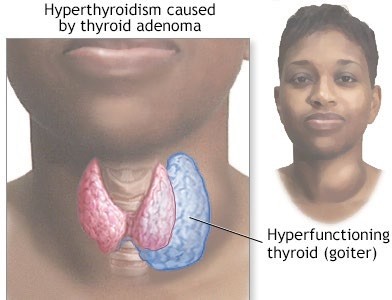Desmopressin acetate (DDAVP) is prescribed to a patient for the treatment of diabetes insipidus. The nurse administering the medication monitors the patient for which therapeutic response?
Decreased blood pressure.
Decreased urinary output.
Decreased blood glucose.
Decreased peripheral edema.
The Correct Answer is B
Desmopressin acetate (DDAVP) is a synthetic hormone used to treat diabetes insipidus, which is a condition that causes excessive urination and thirst due to a lack of antidiuretic hormone (ADH) production in the body. By mimicking the effects of ADH, Desmopressin acetate (DDAVP) helps to reduce the amount of urine produced by the body and increase water reabsorption, which helps to alleviate symptoms of diabetes insipidus.
Therefore, the nurse should monitor the patient's urinary output and ensure that it decreases in response to the medication. It is important to note that Desmopressin acetate (DDAVP) can also cause hyponatremia (low sodium levels in the blood), so sodium levels should also be monitored during treatment.

Nursing Test Bank
Naxlex Comprehensive Predictor Exams
Related Questions
Correct Answer is ["2"]
Explanation
0.25 mg is equivalent to 250 mcg (micrograms). Therefore, the correct answer would be to give half of a 125 mcg tablet, which would be 0.125 mg or 125 mcg.
Synthroid is a prescription medicine used to treat hypothyroidism (low thyroid hormone). Levothyroxine is given when your thyroid does not produce enough of this hormone on its own². The typical starting dosage for this use in adults is 12.5 mcg to 25 mcg, once per day¹. Therefore, if you have Synthroid 125 mcg tablets available and you need to give Synthroid 0.25 mg po, you should give **2 tablets**
Correct Answer is ["A","B","E"]
Explanation
Answer c is incorrect because hyperthyroidism typically causes hypertension, not hypotension. Answer d is also incorrect because hyperthyroidism typically causes increased, not decreased, deep tendon reflexes. Answer f is incorrect because hyperthyroidism typically causes diarrhea, not constipation.

Whether you are a student looking to ace your exams or a practicing nurse seeking to enhance your expertise , our nursing education contents will empower you with the confidence and competence to make a difference in the lives of patients and become a respected leader in the healthcare field.
Visit Naxlex, invest in your future and unlock endless possibilities with our unparalleled nursing education contents today
Report Wrong Answer on the Current Question
Do you disagree with the answer? If yes, what is your expected answer? Explain.
Kindly be descriptive with the issue you are facing.
